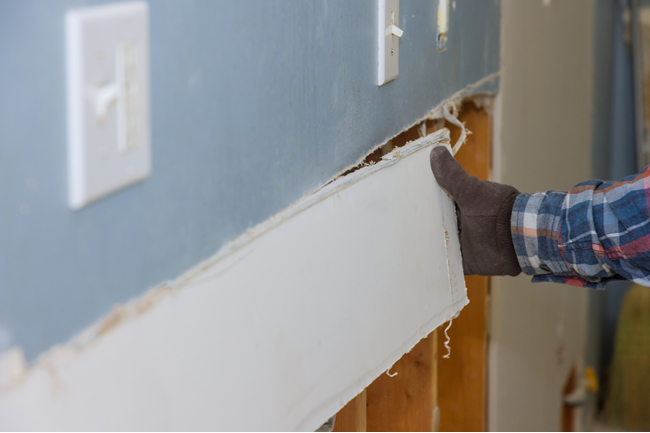Hurricane damage to rental units has an impact on both landlords and tenants, causing evictions when landlords need to repair damage and creating hardship for tenants unable to find a new rental property.
According to reports, landlord-tenant disputes are unfolding across Florida as people grapple with losing homes and belongings in a relentless hurricane season fueled by climate change and unusually warm ocean waters.
Evictions increase as landlords must deal with local code requirements and laws on not allowing a rental to become “uninhabitable” due to flood and wind damage. Many leases in Florida have provisions that terminate leases in case of hurricane damage.
Under state law in Florida, landlords are required to terminate leases of uninhabitable units and return the security deposit, but that’s all. Tenants may not have much else to help them regain their footing. Insurance companies typically don’t cover flooding in rental units, even flooding caused by a hurricane.
Research from the Georgia Institute of Technology and Brookings Institute shows that renters would benefit from improved policies for coping with natural disasters. The study found that rents rise 4% to 6% immediately in an area affected by a disaster — and then continue to rise for three years.
Bloomberg reports that at the height of the 2021 hurricane season, then-Congresswoman Val Demings, who represented Florida’s District 10 in the U.S. House of Representatives, introduced a bill that would have mandated an automatic 90-day moratorium on evictions in areas affected by disasters. But the bill failed to pass, and the following year, when Hurricane Ian tore through central Florida, the costliest storm in state history at that time triggered the kind of tenant crisis the bill was designed to help prevent.
Landlord Hank Rossi pointed out that some of his tenants who had rental insurance were not covered when their rental flooded because their renters’ insurance did not cover flooding.
Landlord-Tenant Disputes Over Repairs to Damaged Rentals
In one example, tenants asked a landlord for 30 days before moving out of the damaged rental, and it caused a huge dispute.
The landlord denied the request because according to the lease, in case of a hurricane, “I get to do emergency damage repair. I got to get in here [and] do it, or it’s going to be black mold, and you’re going to die. And not only that, you have to leave. I’m sorry,” one landlord said he told the tenants.
“The bottom line is the house is unsafe to be in,” the landlord told WUSF.org. “It is not even close to being in code. There are electrical problems, I have water over outlets. I got all kinds of stuff I gotta fix and they can’t be in there.”
“Sadly, the state of Florida has very little to no protections for this scenario. No requirement for relocation assistance for folks that are flooded out and just cannot come back to their homes,” said Ivanna Gonzalez, chief campaigns officer at Florida Rising, a nonprofit that advocates for housing rights, among other issues, in an interview with WUSF.org.
“There are requirements in state law that call for landlords to ensure the habitability of the properties that they rent. And so there’s some some leverage there for a renter, but it absolutely requires the resources to sue a landlord for violating the terms of their contract,” said Gonzalez.






